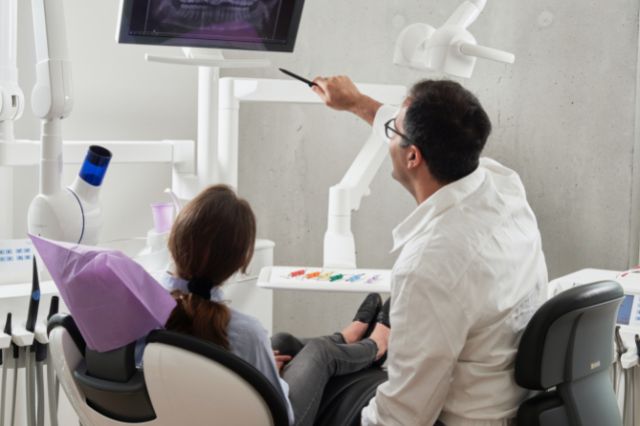What Dental Services Are Covered by Medicare?

Regarding healthcare, Medicare is the federal health insurance program for people aged 65 and above, as well as younger people with disabilities or those with certain medical conditions. Even though Medicare covers a wide range of medical services, it does not cover everything, including routine dental care. So, what Medicare covers dental services? We will provide you with all the necessary information about Medicare and dental coverage.
Understanding Medicare
Medicare is divided into four parts, which include:
1. Part A (Hospital Insurance) covers inpatient care in hospitals, hospice care, and skilled nursing facilities.
2. Part B (Medical Insurance) covers medically necessary services, such as doctor visits, lab tests, preventive screenings, and outpatient care.
3. Part C (Medicare Advantage) – This alternative to Original Medicare is offered by private insurance companies that contract with Medicare. It covers all the services provided by Part A and Part B and often includes additional benefits, such as dental, vision, and hearing.
4. Part D (Prescription drug coverage) covers prescription drugs and can be added to Original Medicare or a Medicare Advantage plan.
It is important to note that while the federal government provides Parts A and B, Parts C and D are provided by private insurance companies.
Dental Services Covered by Medicare?
Unfortunately, Original Medicare (Parts A and B) does not cover routine dental care, such as checkups, cleanings, fillings, extractions, and dentures. However, there are some instances in which Medicare may provide coverage for dental services. Let’s take a closer look at some of these instances:
1. Dental Services Related to Medical Conditions – Medicare may provide coverage for dental services necessary to treat a medical condition, such as oral cancer, jaw fractures, or a dental emergency requiring hospitalization.
2. Dental Services Provided in a Hospital – Medicare may provide coverage if you are admitted to a hospital for a medical condition and require dental services.
3. Dental Services in a Skilled Nursing Facility – Medicare may provide coverage if you reside in a skilled nursing facility and require dental services.
4. Medicare Advantage Plans – Medicare Advantage plans are required to provide at least the same level of coverage as Original Medicare. Still, many programs offer additional benefits, such as dental, vision, and hearing. These plans may cover routine dental care, such as cleanings, fillings, and extractions.
5. Standalone Dental Plans – Medicare does not cover standalone dental plans, but you can purchase a dental plan from a private insurance company that offers dental coverage.
It is important to note that the dental services covered by Medicare Advantage and standalone dental plans can vary significantly from plan to plan. Reviewing the plan’s summary of benefits and speaking with a licensed insurance agent from Clearmatch Medicare could help you to determine what dental services are covered the specific plan.
What Medicare does not Cover Dental Services?
Original Medicare does not cover routine dental care, such as checkups, cleanings, fillings, extractions, and dentures. Additionally, Medicare does not provide coverage for the following dental services:
1. Cosmetic Dental Procedures – Medicare does not cover cosmetic dental procedures like teeth whitening, veneers, and braces.
2. Routine Dental Care – Medicare does not cover routine dental care, such as checkups, cleanings, fillings, and extractions.
3. Dentures – Medicare does not provide coverage for dentures, except in certain circumstances, such as requiring them due to a medical condition, like oral cancer or an accident.
4. Orthodontic Treatment – Medicare does not cover orthodontic treatment, such as braces or aligners, unless it is medically necessary, like correcting a jaw deformity.
5. Implants – Medicare does not provide coverage for dental implants, except in certain circumstances, such as if necessary due to a medical condition or an accident.
It is important to note that while Medicare does not cover these services, you can purchase a standalone dental plan or a Medicare Advantage plan that surrounds them.
How to Get Dental Coverage with Medicare
If you require dental coverage, a few options are available. These include:
1. Medicare Advantage Plans – Many Medicare Advantage plans offer dental coverage as an added benefit. If you qualify, you can enroll in a Medicare Advantage plan during the annual or special enrollment period.
2. Standalone Dental Plans – You can purchase a standard dental plan from a private insurance company offering dental coverage. These plans may cover routine dental care and other services like dentures, implants, and orthodontics.
3. Dental Discount Plans – Dental discount plans are not insurance but provide discounted rates on dental services from participating providers. Medicare does not regulate these plans, but it can provide savings on routine dental care.
Aside from the options mentioned above, there are other ways to obtain dental care at a lower cost if you do not have dental coverage through Medicare or any different insurance plan. One option is to visit a dental school or community health center, which may offer reduced-cost or free dental services. Another option is to participate in a dental savings plan or club, which is not insurance but provides discounts on dental services at participating providers.
It is important to prioritize dental health, as it can affect overall health and well-being. Poor oral health can lead to other health issues like heart disease, diabetes, and respiratory disease. Regular dental checkups and cleanings can help prevent and detect problems early on, improving overall health outcomes.
Medicare does not cover routine dental care, such as checkups, cleanings, fillings, and extractions. However, there are some instances in which Medicare may provide coverage for dental services related to medical conditions, dental services provided in a hospital or skilled nursing facility, and dental services offered by Medicare Advantage or standalone dental plans. Reviewing the plan’s summary of benefits and speaking with a licensed insurance agent to determine what dental services are covered is important. Additionally, you can purchase a standalone dental plan or a Medicare Advantage plan that offers dental coverage or participate in a dental discount plan to receive savings on routine dental care.




